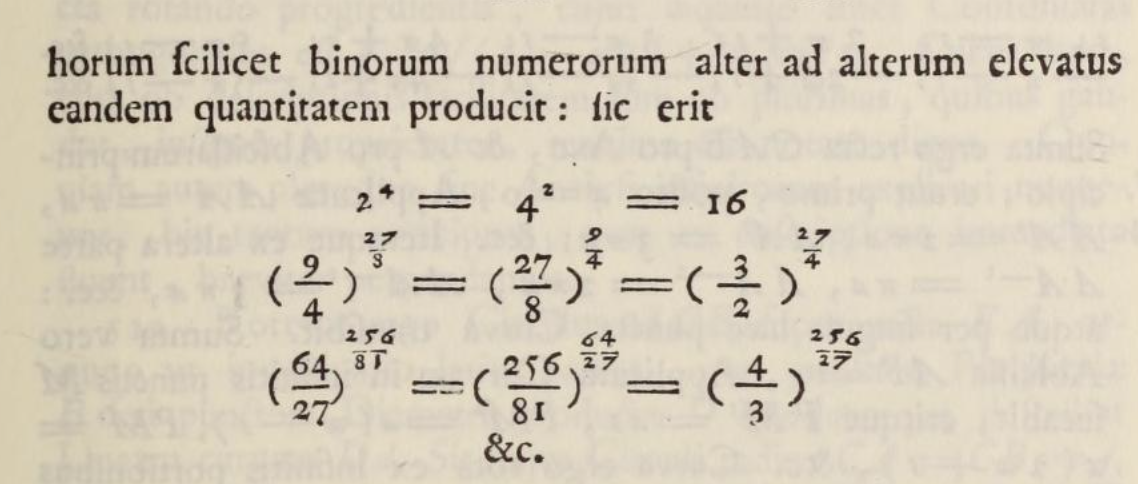Are there more than two rational solutions to $a^b= b^a$?
There is an infinite number of rational solutions $$a=\left(\frac{n+1}{n}\right)^n,\;\;b=\left(\frac{n+1}{n}\right)^{n+1},\;\;n\in\mathbb{Z},\;\;0\neq n\neq -1.$$
For a proof that these are all the rational solutions of $a^b=b^a$ with $a\neq b$, see Marta Sved's article (1990). As she describes, this question has a long history, it was first answered by Euler in 1748 and has been generalized in various ways.
I show a screen shot from Euler's proof that there is an infinite number of rational solutions (Euler uses the word "innumerabilia" -- uncountable, obviously not in the technical sense of the word).


There are infinitely many solutions.
For example, take any positive integer $n$ and set $c=(n+1)/n, a=c^n, b=c^{n+1}$. Then $$ a^b=c^{nb}=c^{nc^{n+1}} $$ and $$ b^a=c^{(n+1)a}=c^{(n+1)c^n}. $$
These two expressions are equal because
$$ nc^{n+1}=(nc)c^n=(n+1)c^n. $$